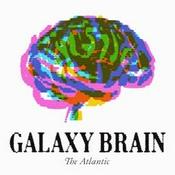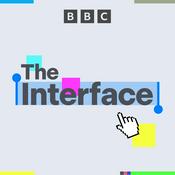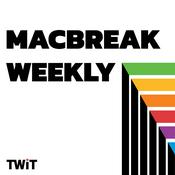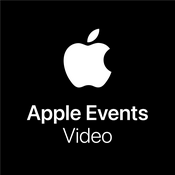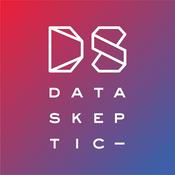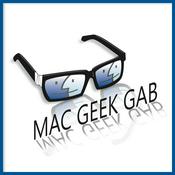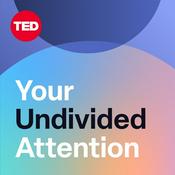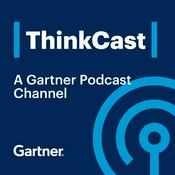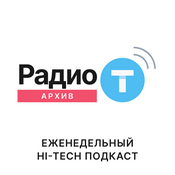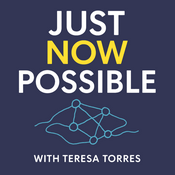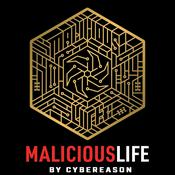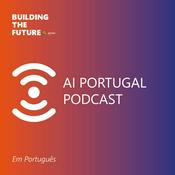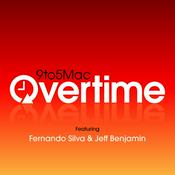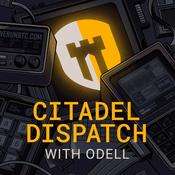68 episódios
- Coding Chats episode 65 - Mike Rispoli discusses his experience of building a Loom replacement through vibe coding, the economic implications of AI for small agencies, and the evolving landscape of software engineering. He emphasizes the importance of hand coding, the challenges of interviewing in the age of AI, and the necessity of clear requirements when working with AI tools. The discussion also touches on the future demand for software engineers and the role of UX in AI-generated code.
Chapters
00:00 Building a Loom Replacement in 30 Minutes
03:40 The Challenges of SaaS Pricing Models
06:29 AI's Impact on Small Businesses and Enterprises
09:19 Interviewing in the Age of AI
11:59 The Future of Coding and AI Integration
26:45 The Importance of Clear Requirements
28:31 Navigating AI in Development
31:31 Feature Creep and Planning
32:30 The Evolving Role of Engineers
34:34 Workflow and Planning with AI
38:45 Iterative Development and Feedback
42:28 Leveraging AI for UX and Design
45:59 The Future of Software Engineering
Mike's Links:
https://www.linkedin.com/in/michael-rispoli-cto
https://x.com/michael_rispoli
https://www.instagram.com/mike_rispoli_cto
https://michaelrispoli.com/
John's Links:
John's LinkedIn: https://www.linkedin.com/in/johncrickett/
John’s YouTube: https://www.youtube.com/@johncrickett
John's Twitter: https://x.com/johncrickett
John's Bluesky: https://bsky.app/profile/johncrickett.bsky.social
Check out John's software engineering related newsletters: Coding Challenges: https://codingchallenges.substack.com/ which shares real-world project ideas that you can use to level up your coding skills.
Developing Skills: https://read.developingskills.fyi/ covering everything from system design to soft skills, helping them progress their career from junior to staff+ or for those that want onto a management track.
Takeaways
Mike built a Loom replacement in just 30 minutes using vibe coding.
AI tools can significantly enhance productivity for software engineers.
The SaaS pricing model can be complicated for small agencies.
It's acceptable to pass on good candidates but not to hire the wrong ones.AI is likely to amplify the demand for software engineers rather than replace them.
Feature creep is a common challenge in software development.
Clear requirements are essential when working with AI tools.
The future of software engineering is promising and exciting.
AI can help engineers improve their design capabilities.
Navigating the evolving landscape of software engineering requires adaptability. - Coding Chats episode 64 - Jakob Sagatowski discusses his unique collaboration with YouTuber Mark Rober to build a robot goalie that plays against Cristiano Ronaldo. He delves into the technical challenges of motion control and computer vision, the role of software engineers in industrial automation, and the importance of real-time systems. Jakob emphasizes the need for better software development practices in the industrial automation sector and shares insights on how aspiring engineers can break into this field.
Chapters
00:00 Introduction to the YouTube Collaboration Project
03:22 Challenges in Motion Control and Computer Vision06:29 Trial and Error in Robotics Development
09:15 Understanding Industrial Automation
12:05 Programming Languages in Industrial Automation
14:31 The Role of Real-Time Systems17:49 Constraints in Real-Time Programming
21:22 Understanding Hardware Constraints in Industrial Automation
24:46 The Role of PLCs in Industrial Control Systems
28:45 Challenges in Software Development Practices
35:32 Breaking into Industrial Automation Careers
Jakob's Links:
Website: www.sagatowski.com
PLC-programming course: https://www.youtube.com/playlist?list=PLimaF0nZKYHz3I3kFP4myaAYjmYk1SowO
Unit testing framework for Beckhoff PLC’s (the course talks about this), if you want to apply TDD in industrial automation:www.tcunit.orghttps://github.com/tcunit
John's Links:
John's LinkedIn: https://www.linkedin.com/in/johncrickett/
John’s YouTube: https://www.youtube.com/@johncrickett
John's Twitter: https://x.com/johncrickett
John's Bluesky: https://bsky.app/profile/johncrickett.bsky.social
Check out John's software engineering related newsletters: Coding Challenges: https://codingchallenges.substack.com/ which shares real-world project ideas that you can use to level up your coding skills.
Developing Skills: https://read.developingskills.fyi/ covering everything from system design to soft skills, helping them progress their career from junior to staff+ or for those that want onto a management track.
Takeaways
Jakob collaborated with Mark Rober on a robot goalie project.
The project involved significant motion control and computer vision challenges.
Real-time systems require deterministic execution within strict time frames.
Industrial automation is evolving, integrating more software engineering practices.
Software engineers are increasingly needed in industrial automation roles.
The development environment in industrial automation is often proprietary and closed.
AI's impact on industrial automation is still developing, with challenges in integration.
Real-time programming constraints differ significantly from web development.
PLCs are essential for controlling industrial processes and machinery.
Aspiring engineers can learn about industrial automation through online resources and experimentation. - Coding Chats episode 63 - John Crickett and Rob Bowley discuss the evolving role of the CTO, emphasizing the importance of strategic leadership that integrates people, process, and technology. They explore the challenges and opportunities presented by AI and other technological trends, highlighting the need for adaptability and effective communication within leadership teams. The discussion also touches on the significance of assessing technology teams and strategies to ensure successful outcomes in software development and organizational growth.
Chapters
00:00 Introduction to the CTO Role
02:49 The Misconceptions of the CTO Position
05:05 The Importance of Feedback and Adaptability
11:50 Navigating AI and Emerging Technologies
19:08 Testing Hypotheses in Technology Implementation
22:19 The Transformative Potential of AI in Software Engineering
27:09 The Economic Impact of Generative AI
29:24 Concerns Over AI Subscription Costs
31:32 Adoption Challenges in Software Development
35:14 Assessing Technology and Team Effectiveness
38:44 The Future of Software Engineering and AI
50:12 Exploring Related Content
Rob's Links:
Blog: https://blog.robbowley.net/
LinkedIn: https://www.linkedin.com/in/robertbowley/
Bluesky: https://bsky.app/profile/robbowley.net
Company URL: https://www.pragmaticpartners.co.uk/
John's Links:
John's LinkedIn: https://www.linkedin.com/in/johncrickett/
John’s YouTube: https://www.youtube.com/@johncrickett
John's Twitter: https://x.com/johncrickett
John's Bluesky: https://bsky.app/profile/johncrickett.bsky.social
Check out John's software engineering related newsletters:
Coding Challenges: https://codingchallenges.substack.com/ which shares real-world project ideas that you can use to level up your coding skills.
Developing Skills: https://read.developingskills.fyi/ covering everything from system design to soft skills, helping them progress their career from junior to staff+ or for those that want onto a management track.
Takeaways
The role of a CTO is a strategic leadership position that intersects people, process, and technology.
CTOs should focus on understanding their strengths and how to leverage them within their organization.
Effective communication and collaboration with the senior leadership team are crucial for a CTO's success.
Many misconceptions about the CTO role stem from a focus on technical skills rather than strategic business outcomes.
Adaptability and awareness of one's strengths are key attributes of good leadership.
Feedback from peers and team members is essential for recognizing gaps in skills and performance.
Learning from failure is a critical aspect of leadership growth.
The integration of AI into products should be approached with caution and thorough exploration.
Organizations must focus on proven, common technologies rather than chasing every new trend.
The assessment of technology teams should prioritize people and their capabilities over just the technology itself. - Coding Chats episode 62 - John Crickett engages in a deep conversation with James about personal branding, building in public, and the challenges of launching a product. James shares his journey of using LinkedIn to build his personal brand, emphasizing the importance of transparency and community feedback in his projects. He recounts how his social network gained 20,000 users in the first 24 hours due to his public approach, which not only helped him secure jobs but also fostered a sense of community around his work.
The discussion also touches on the significance of mental health awareness and the need for open conversations in the workplace, particularly in the tech industry.As they delve into James's latest project, Bearly Fit, they explore the balance between creating a minimum viable product and ensuring quality. James reflects on the expectations that come with building in public and how he has navigated the challenges of app development while maintaining a connection with his audience. The conversation wraps up with insights on the role of AI in coding and the importance of mentoring junior developers, highlighting the need for a supportive environment in tech.
Chapters
00:00 The Power of Personal Branding
06:35 Agility in Development: Lessons Learned
18:29 Building in Public: Success and Challenges
26:08 Streaming and Job Search: A Double-Edged Sword
35:36 The Importance of Mentoring New Developers
40:22 Building in Public: The Journey of Barely Fit
52:58 Challenges and Expectations in App Development
58:54 Leveraging AI in Development
01:05:39 Final Thoughts and Future Plans
01:06:06 Exploring Related Content
James's Links:
https://linktr.ee/mahybe
https://bearly.fit
John's Links:
John's LinkedIn: https://www.linkedin.com/in/johncrickett/
John’s YouTube: https://www.youtube.com/@johncrickett
John's Twitter: https://x.com/johncrickett
John's Bluesky: https://bsky.app/profile/johncrickett.bsky.social
Check out John's software engineering related newsletters: Coding Challenges: https://codingchallenges.substack.com/ which shares real-world project ideas that you can use to level up your coding skills.
Developing Skills: https://read.developingskills.fyi/ covering everything from system design to soft skills, helping them progress their career from junior to staff+ or for those that want onto a management track.
Takeaways
Building in public can lead to unexpected success.
Transparency in struggles fosters community support.
Personal branding is crucial for career advancement.
Quality matters in app development, especially when building in public.
Mentoring junior developers is an investment in the future. - Coding Chats episode 61 - John Crickett interviews Austen about his new book and the significance of behavioural interviews in the hiring process, especially in today's competitive job market. Austen shares insights on what interviewers look for, how to tailor preparation for specific companies, and the importance of storytelling in interviews. He emphasizes the impact of AI on the interview process and discusses how candidates can effectively present their experiences, particularly in conflict resolution scenarios. The conversation also covers the different expectations for candidates at various career stages and the importance of preparation and practice in mastering behavioural interviews.
Chapters
00:00 The Importance of Behavioral Interviews
02:43 What Interviewers Look For
05:32 Understanding Company Expectations
07:48 Austen's Background and Expertise
09:59 The Impact of AI on Interviews
12:10 Behavioral Interviews Beyond Big Tech
14:11 Crafting Your Introduction
18:55 Selecting Stories for Interviews
24:32 Creating Compelling Interview Stories
28:38 The Difference Between Junior and Senior Engineers
29:50 Crafting Compelling Stories for Interviews
31:28 Timing and Length of Stories in Interviews
33:34 Selecting the Right Story for the Interview
37:05 The Importance of Scope and Relevance in Storytelling
37:52 Using the Menu Technique for Story Selection
40:37 Enhancing Conflict Resolution Stories
43:48 The Drama in Conflict Resolution
48:12 Improving Conflict Resolution Narratives
55:00 The Role of Escalation in Conflict Resolution
58:11 The Big Three Questions in Behavioral Interviews
59:54 Understanding Interview Dynamics
01:03:08 The Importance of Asking Questions
01:06:56 Feedback Loops in Behavioral Interviews
01:12:04 Navigating Different Career Stages
01:17:52 Adapting Stories for Different Organizations
01:23:02 Leveraging Personal Projects in Interviews
01:24:41 Key Takeaways for Interview Success
Austen's Links:
https://thebehavioral.substack.com/
https://www.amazon.com/dp/B0G6CM9T87
John's Links:
John's LinkedIn: https://www.linkedin.com/in/johncrickett/
John’s YouTube: https://www.youtube.com/@johncrickett
John's Twitter: https://x.com/johncrickett
John's Bluesky: https://bsky.app/profile/johncrickett.bsky.social
Check out John's software engineering related newsletters: Coding Challenges: https://codingchallenges.substack.com/ which shares real-world project ideas that you can use to level up your coding skills.
Developing Skills: https://read.developingskills.fyi/ covering everything from system design to soft skills, helping them progress their career from junior to staff+ or for those that want onto a management track.
Takeaways
Behavioral interviews are crucial for differentiating candidates in a competitive job market.
Understanding what interviewers are looking for can significantly improve your chances of success.
Tailoring your preparation to the specific company and role is essential.
Your past experiences and stories are likely more valuable than you think.
Practice and preparation are key to performing well in interviews.
Mais podcasts de Tecnologia
Podcasts em tendência em Tecnologia
Sobre Coding Chats
On Coding Chats, John Crickett interviews software engineers of all levels from junior to CTO. He encourages the guests to share the stories of the challenges they have faced in their role and the strategies and tactics they have used to overcome those challenges providing actionable insights other software engineers can use to accelerate their careers.
Sítio Web de podcastOuve Coding Chats, Lex Fridman Podcast e muitos outros podcasts de todo o mundo com a aplicação radio.pt
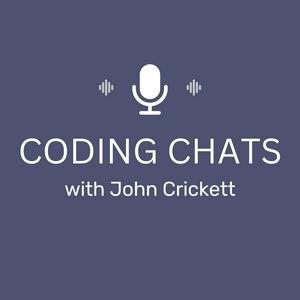
Obtenha a aplicação gratuita radio.pt
- Guardar rádios e podcasts favoritos
- Transmissão via Wi-Fi ou Bluetooth
- Carplay & Android Audo compatìvel
- E ainda mais funções
Obtenha a aplicação gratuita radio.pt
- Guardar rádios e podcasts favoritos
- Transmissão via Wi-Fi ou Bluetooth
- Carplay & Android Audo compatìvel
- E ainda mais funções


Coding Chats
Leia o código,
descarregue a aplicação,
ouça.
descarregue a aplicação,
ouça.









